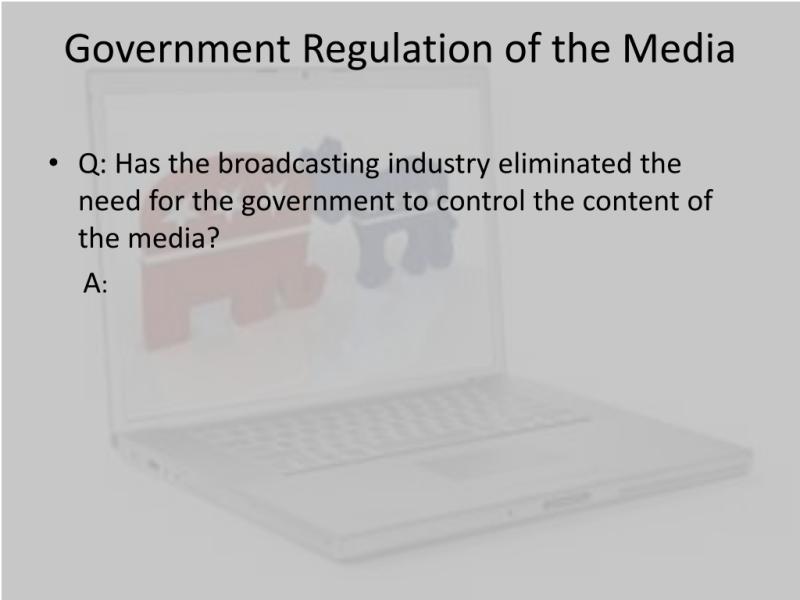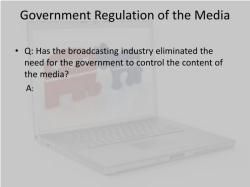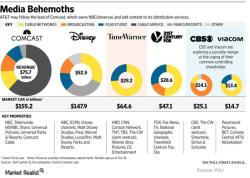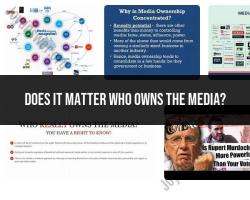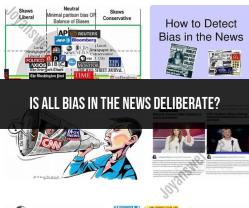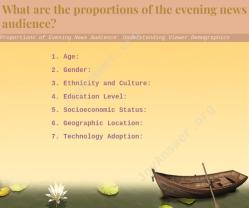Why does the government control media?
Governments might seek to control or influence media for various reasons, which can vary based on political, social, and historical contexts. Here are some common motivations behind government control of media:
Political Agenda: Governments may aim to control media to shape public opinion and maintain their authority. By controlling information dissemination, governments can influence how citizens perceive policies, events, and leadership, often promoting their own narrative or ideology.
Censorship and Propaganda: Governments might censor or manipulate media content to suppress dissenting voices, limit criticism, or prevent the spread of information that challenges their authority. This control can extend to restricting access to certain topics, news, or opinions.
National Security: Governments might justify media control in the name of national security, aiming to prevent the dissemination of sensitive or classified information that could compromise the safety of the country or its citizens.
Social Stability: In some cases, governments might control media to maintain social stability and harmony by controlling the spread of information that could incite unrest, conflict, or division within society.
Economic Interests: Government control or regulation of media can also serve economic interests by favoring certain media outlets or stakeholders aligned with the government, impacting advertising revenues, or influencing business interests.
Information Control: Governments may view media control as a means to ensure that information aligns with state-approved narratives, particularly in authoritarian regimes where dissent is heavily restricted.
While government control of media can serve certain interests, it often raises concerns about press freedom, freedom of speech, and the free flow of information essential for a healthy democracy. Press freedom allows for a diverse range of voices, critical analysis, and the dissemination of accurate information, which are vital components of an informed and engaged citizenry.
In democratic societies, a balance between government regulation (ensuring ethical standards and fair practices) and press freedom is sought to ensure transparency, accountability, and the protection of civil liberties. However, in less democratic or authoritarian regimes, media control can be more pronounced, limiting freedom of expression and hindering access to diverse viewpoints.
What are the reasons behind government oversight or regulation of media outlets?
Governments regulate media outlets for various reasons, ranging from protecting citizens from harmful content to ensuring fair competition and a diverse media landscape. Here are some of the key justifications:
1. Protecting Citizens:
- Preventing harm: Governments may regulate harmful content such as hate speech, pornography, or incitement to violence to protect vulnerable groups and maintain social order.
- Promoting public health and safety: Regulations can address issues like false advertising of harmful products or misinformation regarding public health concerns.
- Protecting children: Governments may regulate content deemed inappropriate for children, such as excessive violence or sexual content.
2. Ensuring Fair Competition and Market Access:
- Preventing media monopolies: Regulations aim to ensure a diverse and competitive media landscape by preventing monopolies that restrict access to information and limit free expression.
- Protecting ownership diversity: Regulations may limit foreign ownership of media outlets or cross-ownership of multiple media platforms to prevent undue influence and promote diverse perspectives.
- Promoting fair market practices: Governments may regulate unfair business practices in the media industry, such as predatory pricing or anti-competitive advertising practices.
3. Promoting Public Interest and Social Cohesion:
- Promoting social and cultural values: Governments may regulate media content to reflect and promote desirable social and cultural values, such as tolerance, respect, and diversity.
- Ensuring access to information: Regulations may ensure that citizens have access to diverse and reliable news sources, promoting an informed citizenry and democratic participation.
- Holding power accountable: Media regulation can play a role in holding government officials and powerful individuals accountable by providing a platform for investigative journalism and critical reporting.
4. Balancing Individual Rights with Public Interest:
- Balancing freedom of expression with other rights: Governments must balance the right to freedom of expression with other fundamental rights such as privacy, dignity, and security.
- Setting limits on hate speech and harmful content: While protecting free speech, governments must also ensure that it does not incite hatred, discrimination, or violence.
- Ensuring transparency and accountability: Regulations should be transparent and implemented in a way that respects due process and protects against censorship and arbitrary restrictions.
The specific justifications for media regulation vary depending on the country's political system, cultural values, and historical context. However, the core objectives generally revolve around protecting citizens, ensuring fair competition, promoting public interest, and balancing individual rights with public interests.
